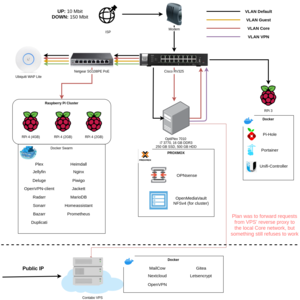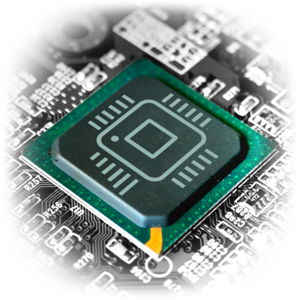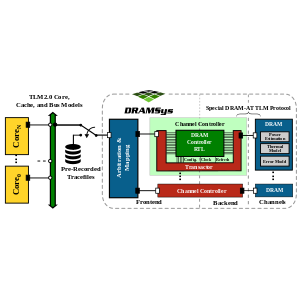Projects
Homelab
Self-hosted stack that I am running. Its main objective is to learn. I have a small cluster of 3 Raspberry Pis, VPS, Proxmox host and some networking equipment. Proxmox hosts OPNSense firewall and OpenMediaVault for NFS. VPS is used for all the Public traffic.
Attempt at soldering
Proud to type in the office on the keybaord that it is powered by a product designed in the same very office. Lily58 (bottom) uses Nrfmicros which are based on nRF52840, wireless and low power.
Next attempt was more of a show off... RGB, low profile, enclosed in a case. Doesn't come close in power consumption with a simplistic Lily, so it is wired, but this time with the screens!
EMECSthon 2019
Embedded Student Hackathon, more than 10 teams, 24 hours to create an embedded system of your dreams, where EMECSthon provides you with everything you need to accomplish it. Sponsors: John Deere, STI, Lattice and others
Me and 3 other members of the team were responsible for the organisation of the event from the idea till the gala ceremony. Youtube video describes it the best.
High-level verification environment
The idea is to accelerate the RTL simulation of any memory controller. Such simulations are cycle accurate, but they require HDL source code for all components of the computation system. It is not always feasible, plus it is slow. Hence, we merged an RTL memory controller with a high-level simulation environment using SystemC and TLM, which resulted in more than 100x faster simulation, while keeping cycle-accuracy
PDF | Source-code (coming soon)
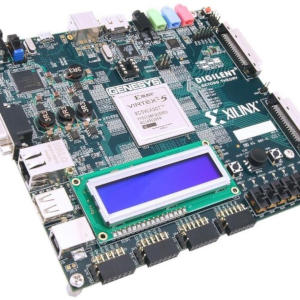
Client in a Distributed System
Implementing a node of a distributed system consisting of a CPU, Instruction Memory, Data Memory, LCD Controller for the on-board LCD, PS2 Keyboard Controller, and a CAN Controller on a Xilinx FPGA board.
Synchronizing 16 bytes of data that represent the ASCII characters that appear on the LCD after a key press on the Keyboard, where all components are connected using a Wishbone Bus with the CPU acting as its master.
Sadly we are not allowed to publish the source-code =(
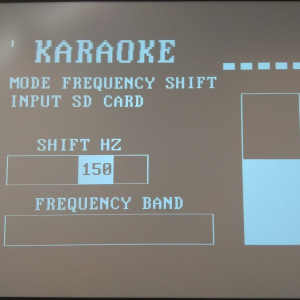
Karaoke System
Developing a digital SoC for Karaoke, based on the FPGA and ARM processor. System included two audio inputs, audio output, video (VGA) output, set of switches and SD card. One of the audio outputs was modified with a set of filters and added to the second input (Human voice + external music source). ARM processor was responsible for reading audio files from the SD card (internal audio source). All parameters (Status of filters, volume and music source) were displayed on the screen using VGA.
Short Video | No source-code either
